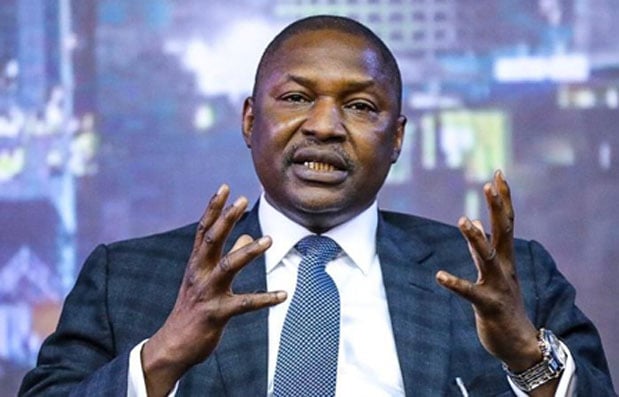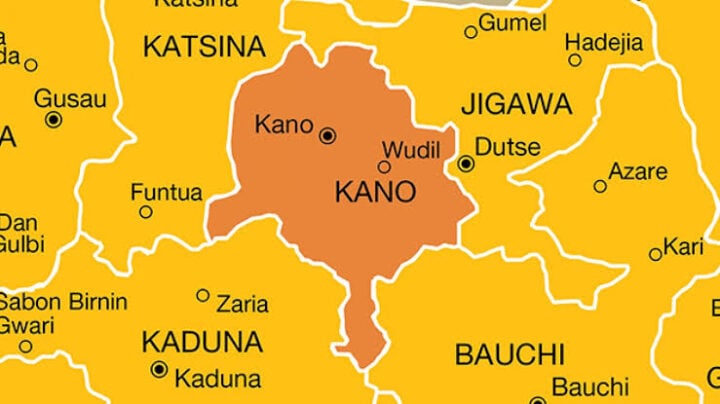ACCRA, GHANA - MARCH 01: A general view of the Parliament of Ghana during Turkish President Recep Tayyip Erdogan's visit, in the capital Accra on March 01, 2016. (Photo by Okan Ozer/Anadolu Agency/Getty Images)
The Ghanaian government has asked the federal government to review the list of goods banned for importation into Nigeria.
Alban Bagbin, the speaker of the parliament of Ghana, conveyed the message in his address to members of the house of representatives in Abuja on Wednesday.
In August 2019, President Muhammadu Buhari directed the Central Bank of Nigeria (CBN) to restrict forex for food importation to ensure improvement in local agricultural production.
In February 2020, the apex bank added milk and dairy products to the list of items not eligible for forex.
Advertisement
In his address, Bagbin said African countries must work together to combat emerging challenges.
“As I have repeatedly stated on various platforms, if COVID-19 has taught us any lesson, it is that no country, no individual and no group of persons can succeed on its own efforts,” he said.
“Given the nature of global emerging challenges which tend to be trans-territorial and trans-generational, we need, as people and nations, to forge and bond together.
Advertisement
“If we want to survive in peace and prosperity, we have no alternatives than to work together to find common solutions in this global village.”
The Ghanaian speaker said both countries are making progress in resolving the concerns of the Nigerian traders in Ghana.
He said Nigeria should review its import ban list to align with contemporary international trade practices.
“That is always the way to go if we are interested in the peace and development of our countries. I am confident that the intervention of our two legislatures in this effort will yield results,” he said.
Advertisement
“To this end, it will be highly appreciated if the Government of Nigeria will review the prohibition list banning the importation of specific goods and commodities into the Nigerian market, from countries including Ghana.
“This request is underscored by the resolution as captured in the communique of 31st May 2021 referred to supra. I have no doubt, Rt. Hon. Speaker, under your sterling leadership of the House of Representatives of the Federal Republic of Nigeria, an institution of measureless might and majesty, Nigeria can fine-tune the prohibition list to align with contemporary international trade practices.
“The coming into being of the African Continental Free Trade Area signals that we are open for business and mutually beneficial investments. Indeed, Africa’s prosperity depends largely on intra African trade.”
The speaker said an increase in trade volumes is the surest way to deepen regional integration in Africa.
Advertisement
He said the low levels of trade among African countries compared to trade with other parts of the world constitute one of the defining characteristics of the continued poverty in the continent.
“Data available from the United Nations Economic Commission for Africa (UNECA) indicates that in 2019 Africa’s total volume of trade was about US$460billion, however only $69billion of this huge volume of trade was transacted among African nations,” he said.
Advertisement
“What is even more worrying is that most of these imports traded can be produced and procured in Africa.
“This unfortunate trend hinders prospects of bringing the needed prosperity to our people.
Advertisement
“It results in the frailty of our security situation given that the rising youth unemployment on our continent, which is the world’s youngest continent, occasioned by this unpleasant development, provides handy tools to those so minded to perpetrate all acts of vandalism, hooliganism and violent extremism.”
Advertisement
Add a comment






